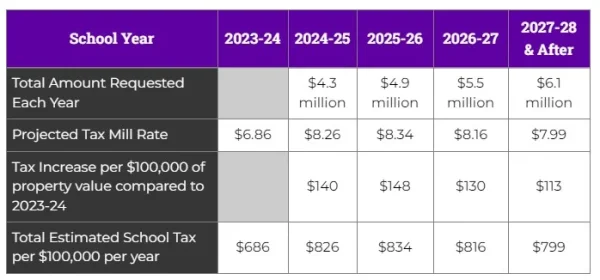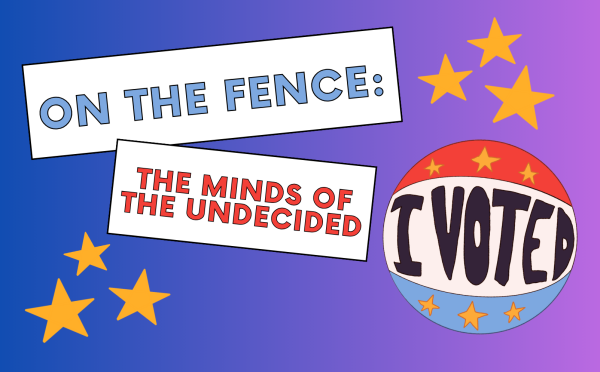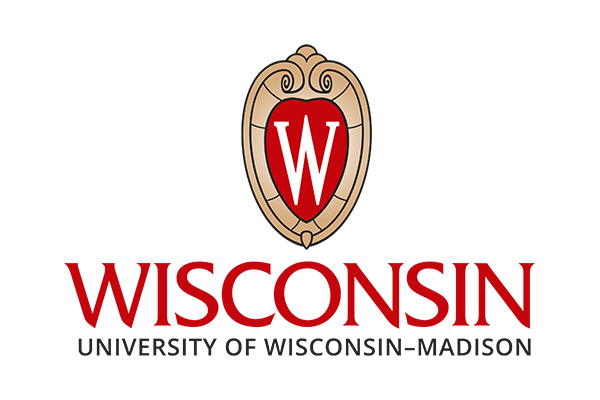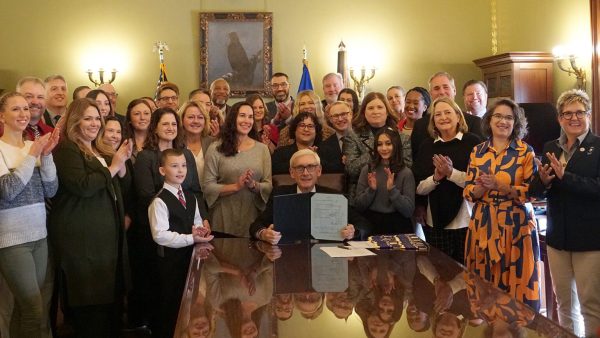UW Students Will Face Tuition Increase
Photo submitted by Luke Thorson. Seniors Luke Thorson and Emma Anderson pose with their acceptance letters while touring UW-La Crosse.
The University of Wisconsin System President Jay Rothman proposed a new budget plan in early March 2023. Later that month, The Board of Regents approved the plan, resulting in a 4-5% tuition increase for Wisconsin-resident students. This increase would take effect during the 2023-2024 academic year. Additionally, programs such as nursing, business, and engineering will experience a higher enrollment fee. Rothman announced these increases ahead of time so that students and families would have adequate time to prepare.
Compared to national averages, peers, and other Midwestern universities, a UW System affordability review found that a University of Wisconsin education is affordable for most students.
“This modest tuition increase will help our universities continue to provide students with a world-class education, produce the talent that makes Wisconsin’s workforce succeed, and spark innovation and vitality in our communities,” Rothman says.
Specifically, the University of Wisconsin– Madison will generate about $21.5 million with the tuition increase. They plan to invest that money into expanding access to high-demand courses and providing new teaching and student services positions. The additional funds will also support the teaching and research mission at UW–Madison.
The University of Wisconsin–Madison will see a 4% increase for Wisconsin residents and a 3% increase for non-residents. This is the first increase UW–Madison is encountering since 2012.
UW–Madison’s Chancellor, Jennifer Mnookin, states from the school’s website that the tuition increase is parallel to the education quality and experience offered at the university.
“The University of Wisconsin–Madison is recognized as a top-tier academic and research institution. After a decade of frozen in-state tuition, additional investment is needed to maintain our quality. At the same time, it is critical to maintain and further build our commitment to ensuring that access to the university remains affordable,” Mnookin states. “We believe the tuition plan approved by the Board reflects those priorities. UW–Madison has expanded financial aid offerings to lessen the impact inflation is having on families with financial need.”
Bucky’s Tuition Promise provides free tuition and fees to about 3,500 Wisconsin high school residents from 70 of the state’s 72 counties. Luke Thorson is a senior here at Stoughton High School and will be attending UW-La Crosse with some scholarships and grants. He plans to major in Computer Science.
“I’ve always been interested in technology, so Computer Science seems like the right fit,” Thorson says.
Thorson had not learned about the tuition increase until recently. He says that it is unfair to students since UW colleges already make much money, and many undergraduate students cannot afford college tuition as is.
In contrast to Thorson’s and other students’ potential worries and beliefs, Rothman says the increase will satisfy students’ and teachers’ needs.
“We are an incredible value compared to our peers, and we know that an investment in higher education pays off in the long run with higher earnings and more career mobility,” Rothman says. “The strength of the UW System rests in the quality of education it provides to its students, and that is done through sound investment.”

Raegan is a senior, and this is her second year on staff! She's the copy editor and a staff writer. She joined the Norse Star because she was told by her...










